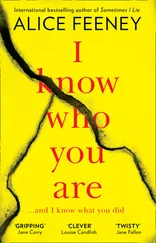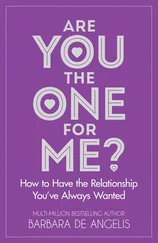“Great,” I said.
“I’m kidding,” he said. “You worry too much.”
“So I’m told.”
“Before you go,” he said, “you need to sign this.” He handed me a confidentiality agreement and a ballpoint pen. “Standard stuff,” he said as I skimmed the page. “We can’t have you selling our secrets.”
* * *
AFTER I LEFT THE AGENCY, I waited outside on the street. I tucked myself behind one of the columns outside the Bolshoi Theater and kept my eyes on number 26. I just wanted one more look at Zoya. I knew she’d lived in the States; I needed to know if she lived in the house across the street from me.
After about forty minutes, she exited the building. She was wearing a short wool coat and, like most women her age, a miniskirt and black tights. She turned left and walked toward the Metro at Teatralnaya. I followed from across the street. I was a few feet behind her on the escalator as we plunged into the station; I was twenty yards behind as she crossed underground into the Red Line station called Okhotny Ryad. She never looked back. When she boarded the train, I slipped into the same car. She pulled a book from her bag. I was too far away to see what she was reading but close enough to see that it was in Russian. Zoya resembled all the other people on the train: sitting up straight, book open on her lap, taut as a wire.
As the train approached Park Kultury, she returned the book to her bag and stood up. In Russian she mumbled, “Are you getting off?” to the people blocking the door. The sea parted for her. I trailed her off the train and up the escalator.
When we emerged from underground, we were on the bank of the river. I followed Zoya over Krymsky Bridge to Gorky Park. She paid her entrance fee at the enormous stone gate. I did the same. The Central Park of Culture and Leisure was no longer the proletariat’s perfect playground. The manicured gardens of Brezhnev’s day had given way to cracked concrete littered with broken glass. Rickety amusements lined the riverbank: an old Soviet space shuttle; a roller coaster; a Ferris wheel. The Buran shuttle seemed especially dated, a trophy from another era. The Buran shuttles were designed in response to the American shuttle program but were never actually launched. Now this prototype was collecting rust.
Zoya walked with sharp, small steps. There was no suggestion of Jenny’s easy stride. Her hands were shoved deep into her pockets. Was she meeting someone? There were other young people in the park, drinking and smoking, killing time. But Zoya marched toward the roller coaster. It seemed an odd choice on an October afternoon with just a couple hours of light left in the day. But when the coaster creaked into motion, I was two cars behind her.
I hadn’t been on a roller coaster since a trip to Kings Dominion when I was nine or ten. Jenny’s mother took us for the day. I remember the mounting dread as we waited in line for the Rebel Yell, snaking closer and closer to the ride’s entrance, corralled by railings that made it impossible to turn back. My mother had alerted me to the dangers of roller coasters before we set out that morning. A sixteen-year-old girl had died after she fell from a coaster in Connecticut, she warned. A ten-year-old girl died after a ride in Orlando; apparently she’d had a heart condition that was triggered by the speed. Jenny squealed with excitement. I feigned enthusiasm. I wanted to be the kind of girl who was fearless and fun. When the safety bar came down, I clenched my teeth and shut my eyes as our car rattled up the first hill.
Now I kept my eyes open and saw Moscow spread out below us. We had a spectacular view of the river from above. If the coaster flew off the tracks, we’d plunge into the water and drown. I was sure that Russian safety standards were not up to snuff. A bribe slipped to an inspector was enough to cause catastrophe. I calmed myself by focusing on Zoya. I could barely see the back of her head. If she were actually Jenny, I thought, perhaps she came here to re-create her American childhood. The roller coaster was supposedly invented in Russia—that’s why the French call them “Russian mountains”—but in Russia, roller coasters were seen as a foreign amusement. They called them “American mountains.” The first coaster in Gorky Park was imported during perestroika.
Reasoning failed me and nerves took over when we reached the apex of the first hill. We seemed to hang in space for a moment, like a cartoon car whose driver has not yet realized he’s gone off a cliff. Did I have an undiagnosed heart condition that was going to kill me? I had my passport, in case someone needed to identify my body. My poor mother. I clamped my eyes shut for a moment, but then I heard a delighted squeal—could it be Jenny’s voice?—and I forced my eyes back open as we hurtled down the American mountain. I kept them open for every stomach-turning curve, every gravity-defying loop, and though I didn’t hear any more Jenny screams, by the end of the forty-five-second ride I experienced the surprising alchemy that turns fear into thrills. I actually enjoyed it.
After the ride, Zoya nonchalantly lit a cigarette and walked toward the exit. Had she come all the way to Gorky Park for one roller-coaster ride? Was this her way of blowing off steam? Was this a typical afternoon for her? I suddenly realized I was going to throw up. The bile swam up my throat, and I spewed, leaving my motion sickness pooled on the cement. I studied the vomit as if it were a Rorschach test, and I swear I saw a hammer and sickle, and then an anchor, like the ones at the gates of the Naval Observatory on Massachusetts Avenue in D.C. And that made me think of the British embassy, the brick monstrosity next to the Naval Observatory, and that made me think of my father, who escaped my mother because he thought he’d have a better life somewhere else. So much for vows. Jesus, I was so desperate for direction that I was looking for signs in my own puke. Surely this was madness. Was I destined to be like my mother, living in an emotional tundra with nothing but a library of memories, shelved by date, to keep me warm? I didn’t want to spend my life replaying the same footage again and again. I wiped my mouth with the sleeve of my pea coat. When I looked up, I’d lost Zoya. She was nowhere in sight.
* * *
I SUPPOSE I THOUGHT that if Jenny were really alive, if we were ever reunited, that there would be some sort of instant click of recognition and that we would fit neatly together like old parts. But my encounter with Zoya—during the focus groups and then in Gorky Park—was so opaque that even hours later I wasn’t sure what I’d seen. I could have sworn it was Jenny through the glass, but then inside the conference room nothing was certain. She thought I was a stranger. Surely Jenny would recognize me, even after all this time. I hadn’t changed that much, had I?
As we get older, voices deepen. Wrinkles crease the skin around eyes. Teeth yellow. Hair turns gray. I’d seen how my childhood classmates changed over the years. Noses grew bigger in puberty, altering the way features lined up in a face. Cheekbones emerged from baby fat. Gangly girls became pear-shaped, stubby girls shot up, slouchers pulled their shoulders back. There were girls like Kim whose metabolisms betrayed them. And then there was me, who suddenly started getting noticed for reasons I couldn’t explain and still didn’t entirely trust. During college I ran into an elementary-school classmate on an Amtrak train somewhere between New York and Boston. Her family had moved away from Washington, so I hadn’t seen her since sixth grade. “Sarah Zuckerman?” she said in disbelief. “You’re ... beautiful.” She was nicer to me than she had ever been before.
In my room that night, I studied the photos of Jenny in her book. I tried to transpose my mental image of Zoya onto the pictures from 1983, to see if and where the bone structures lined up. It reminded me of America’s Most Wanted, of the drawings speculating what criminals might look like long after escape. If you add ten years and twenty pounds and a mustache or a beard. If you change the hair color and the eye color and add glasses or bangs. The possibilities were infinite. Even something as simple as a hat or a scarf can change the way you see someone. I’d always thought of Jenny as typically American, but what did that mean? I could see now how deep her eyes were set and how high her cheekbones were. Her face was almost Slavic. What if she were really Russian? Maybe she and her parents had moved to Washington from Perm, not Dayton. Maybe they had been posing as Americans. It’s amazing how our perspectives shift with time. It’s like the drinking fountains at my elementary school. As a kid I had to stand on my toes to reach them, and when I went back to visit as an adult, I couldn’t believe they were so low to the ground. I fell asleep with Jenny’s book open in bed with me. I was startled awake by the blare of a car alarm—they were everywhere in Moscow, erupting violently, reminding me where I was. A place seething with crime. A place of new money and ancient grudges. I went to my window. I don’t know which car was the source of the noise, but it was snowing, and I watched the white swirl over the alley and cover the dirt.
Читать дальше












